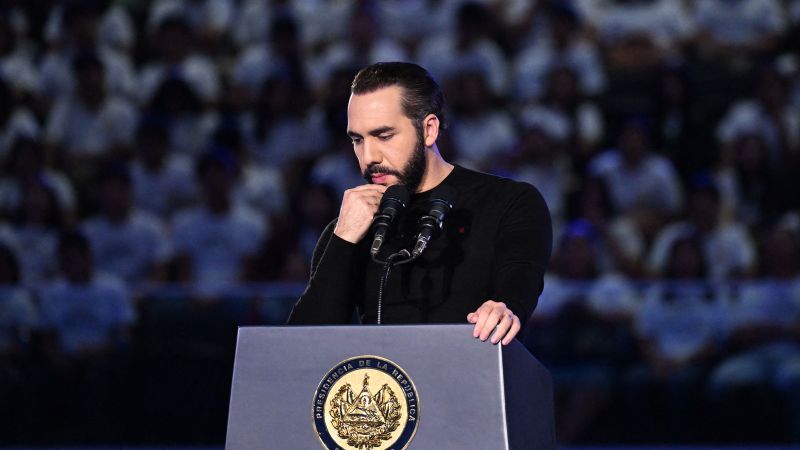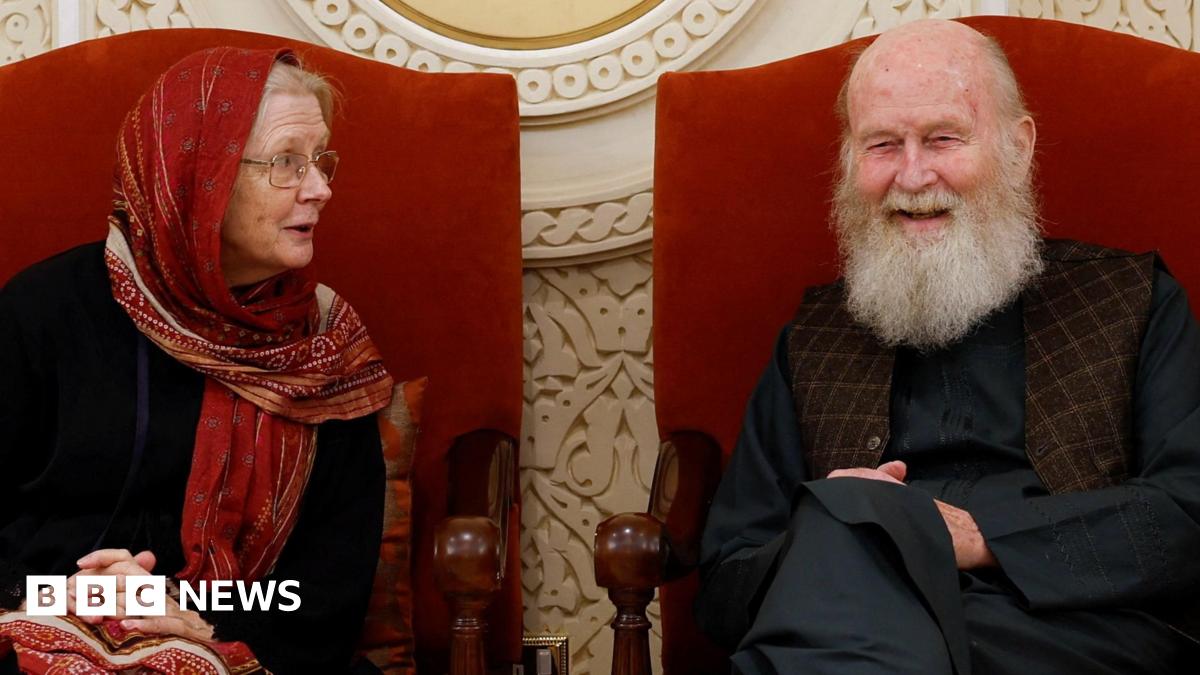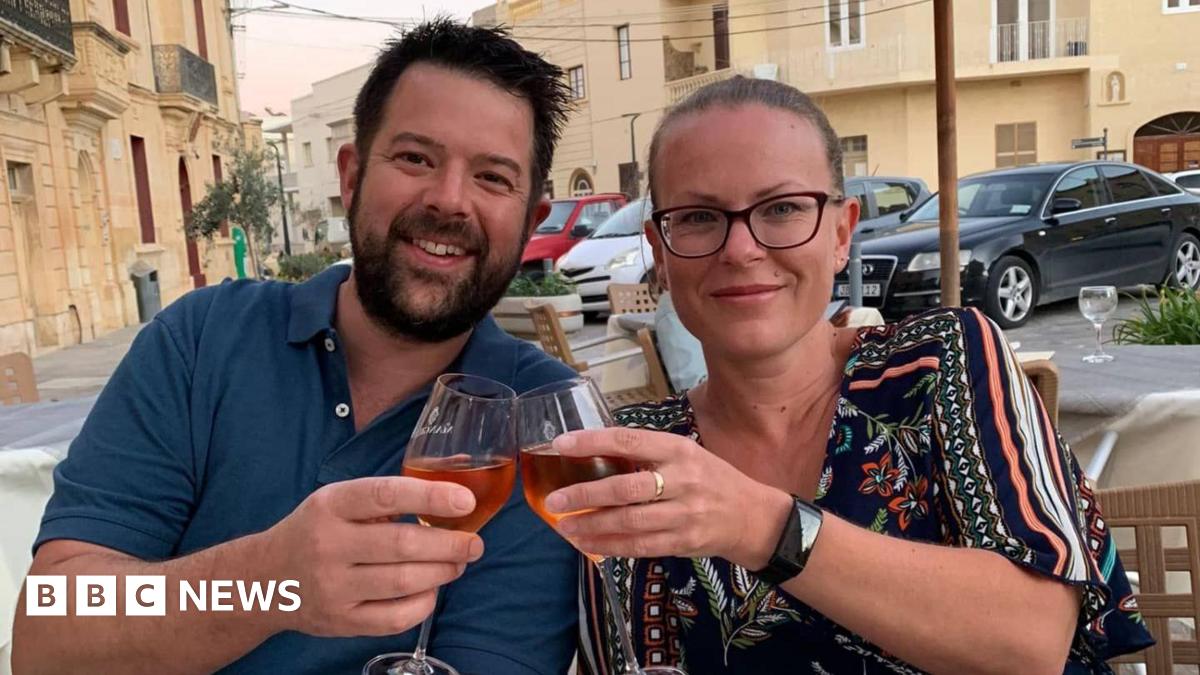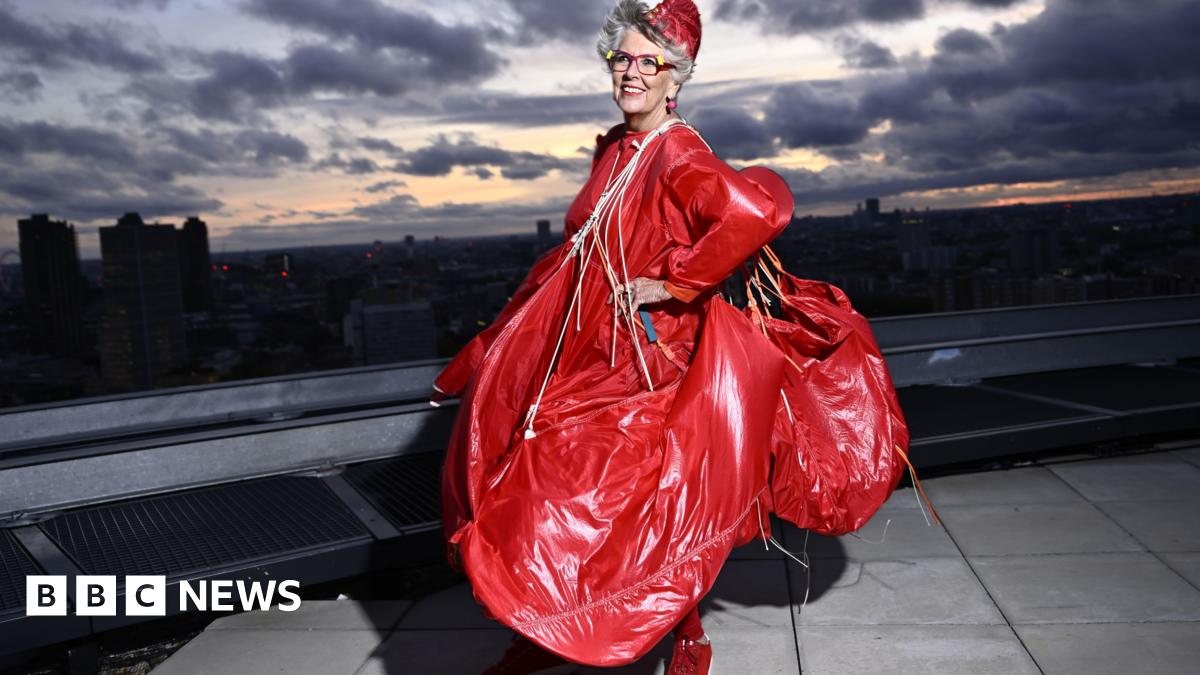Erosion Of Democracy: Assessing The State Of Human Rights In Bukele's El Salvador

Welcome to your ultimate source for breaking news, trending updates, and in-depth stories from around the world. Whether it's politics, technology, entertainment, sports, or lifestyle, we bring you real-time updates that keep you informed and ahead of the curve.
Our team works tirelessly to ensure you never miss a moment. From the latest developments in global events to the most talked-about topics on social media, our news platform is designed to deliver accurate and timely information, all in one place.
Stay in the know and join thousands of readers who trust us for reliable, up-to-date content. Explore our expertly curated articles and dive deeper into the stories that matter to you. Visit Best Website now and be part of the conversation. Don't miss out on the headlines that shape our world!
Table of Contents
Erosion of Democracy: Assessing the State of Human Rights in Bukele's El Salvador
El Salvador, once lauded for its progress after a brutal civil war, is facing growing international concern over the human rights situation under President Nayib Bukele. His administration, lauded by some for its tough stance on crime, is increasingly criticized for authoritarian tendencies that threaten the very foundations of Salvadoran democracy. This article delves into the worrying erosion of democratic institutions and the consequent impact on human rights in the country.
Bukele's Iron Fist: A Crackdown on Dissent
President Bukele’s popularity stems largely from his unwavering promise to tackle the country's rampant gang violence. His "mano dura" (iron fist) approach, however, has come at a steep price. Critics argue his methods often skirt the boundaries of legality, and in many cases, outright violate fundamental human rights. The state of emergency declared in March 2022, extended multiple times, has resulted in the mass arrest of thousands, many without due process or access to legal representation. These arrests disproportionately affect marginalized communities, fueling concerns about systemic injustices.
The Suppression of Freedom of Speech and the Press
The crackdown extends beyond gang members. Journalists, activists, and opposition politicians face increasing intimidation and harassment. Freedom of the press is severely curtailed, with critical media outlets facing censorship and legal challenges. This stifling of dissent creates a climate of fear, hindering independent reporting and accountability. International organizations like Human Rights Watch and Amnesty International have documented numerous cases of intimidation and attacks against journalists, highlighting the urgent need for protection of press freedom in El Salvador.
Imprisonment Without Due Process: A Threat to the Rule of Law
One of the most alarming aspects of Bukele's rule is the widespread disregard for due process. The mass arrests under the state of emergency have overwhelmed the judicial system, leading to prolonged detentions without proper legal representation or fair trials. Reports of torture and inhumane conditions in overcrowded prisons are becoming increasingly common, raising serious ethical and legal concerns. This erosion of the rule of law undermines the very fabric of a democratic society.
International Condemnation and the Path Forward
The international community has expressed growing alarm over the human rights situation in El Salvador. Organizations such as the United Nations have issued reports condemning the human rights violations and urging the government to uphold its international obligations. The Inter-American Commission on Human Rights (IACHR) has also voiced strong concerns, calling for an end to the repression and a return to democratic norms.
The future of democracy in El Salvador hangs precariously in the balance. The international community must continue to exert pressure on the Bukele administration to respect human rights, uphold the rule of law, and guarantee freedom of expression. Without a concerted effort to address these issues, El Salvador risks further descent into authoritarianism, jeopardizing its hard-won progress and the well-being of its citizens.
Keywords: El Salvador, Nayib Bukele, human rights, democracy, authoritarianism, state of emergency, freedom of speech, press freedom, rule of law, due process, human rights violations, mass arrests, gang violence, Inter-American Commission on Human Rights (IACHR), Amnesty International, Human Rights Watch, UN
Call to Action: Stay informed about the situation in El Salvador and support organizations working to protect human rights and promote democracy in the region. Learn more about the work of organizations like Human Rights Watch () and Amnesty International ().

Thank you for visiting our website, your trusted source for the latest updates and in-depth coverage on Erosion Of Democracy: Assessing The State Of Human Rights In Bukele's El Salvador. We're committed to keeping you informed with timely and accurate information to meet your curiosity and needs.
If you have any questions, suggestions, or feedback, we'd love to hear from you. Your insights are valuable to us and help us improve to serve you better. Feel free to reach out through our contact page.
Don't forget to bookmark our website and check back regularly for the latest headlines and trending topics. See you next time, and thank you for being part of our growing community!
Featured Posts
-
 Photographer Documents The Horrors Of Sudans Civil War In Powerful Images
Jun 02, 2025
Photographer Documents The Horrors Of Sudans Civil War In Powerful Images
Jun 02, 2025 -
 Boeing Benefits From Trump Trade Policy Bank Of America Analyst Upgrade
Jun 02, 2025
Boeing Benefits From Trump Trade Policy Bank Of America Analyst Upgrade
Jun 02, 2025 -
 Will The Disposable Vape Ban Work Teen Vaping Rates Under Scrutiny
Jun 02, 2025
Will The Disposable Vape Ban Work Teen Vaping Rates Under Scrutiny
Jun 02, 2025 -
 Urgent Mass Shooting In Catawba County Results In Death And Injuries
Jun 02, 2025
Urgent Mass Shooting In Catawba County Results In Death And Injuries
Jun 02, 2025 -
 A Break From Football Tuchel Takes England Squad To Spains F1
Jun 02, 2025
A Break From Football Tuchel Takes England Squad To Spains F1
Jun 02, 2025
Latest Posts
-
 Russia Launches Massive Air Strikes On Ukraine Poland Deploys Fighter Jets
Sep 22, 2025
Russia Launches Massive Air Strikes On Ukraine Poland Deploys Fighter Jets
Sep 22, 2025 -
 British Couples Son Freed By Taliban Joyful Reunion In Uk
Sep 22, 2025
British Couples Son Freed By Taliban Joyful Reunion In Uk
Sep 22, 2025 -
 Dealing With Loose Skin A Common Side Effect Of Weight Loss Drugs
Sep 22, 2025
Dealing With Loose Skin A Common Side Effect Of Weight Loss Drugs
Sep 22, 2025 -
 Car And Van Crash On A9 At Slochd Claims Two Lives Couple Named
Sep 22, 2025
Car And Van Crash On A9 At Slochd Claims Two Lives Couple Named
Sep 22, 2025 -
 London Fashion Week Romeo Beckhams Runway Walk And Dame Prues Show Stopping Outfit
Sep 22, 2025
London Fashion Week Romeo Beckhams Runway Walk And Dame Prues Show Stopping Outfit
Sep 22, 2025
